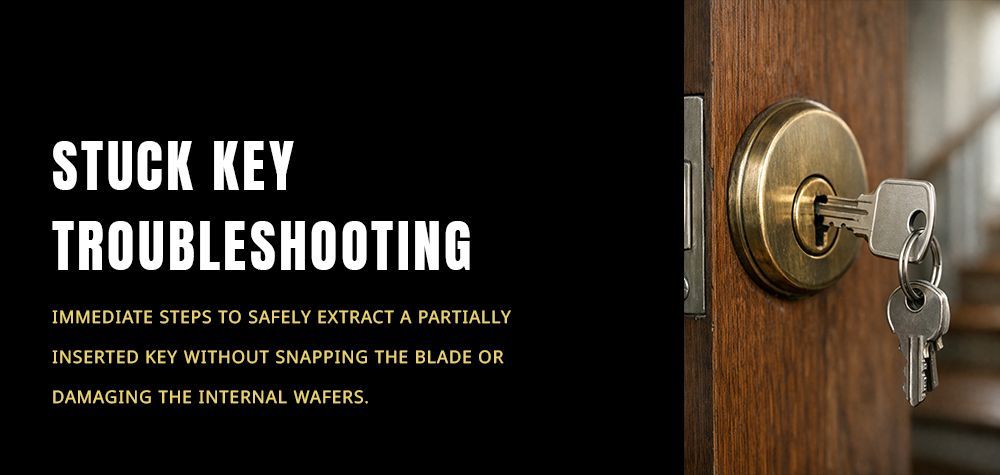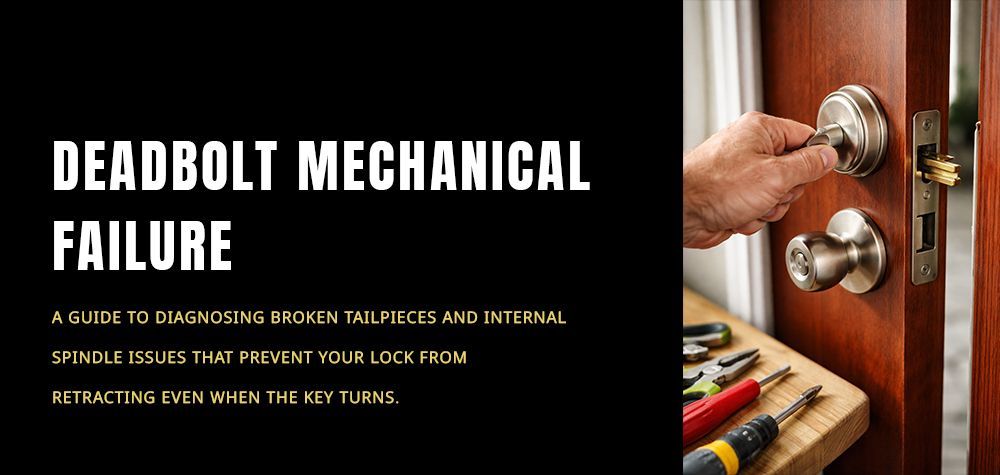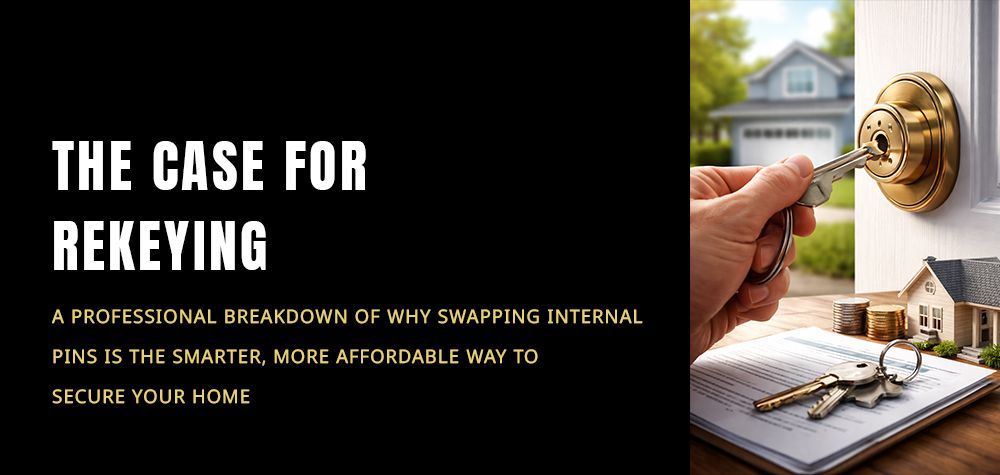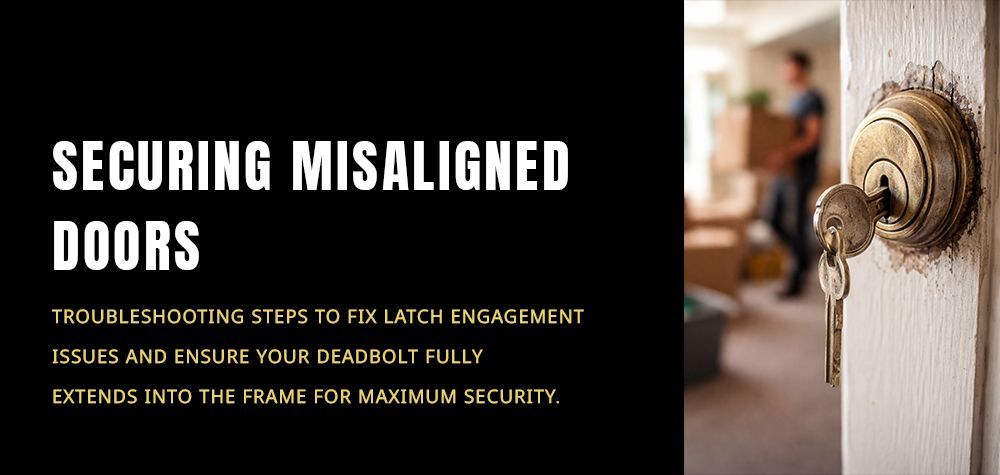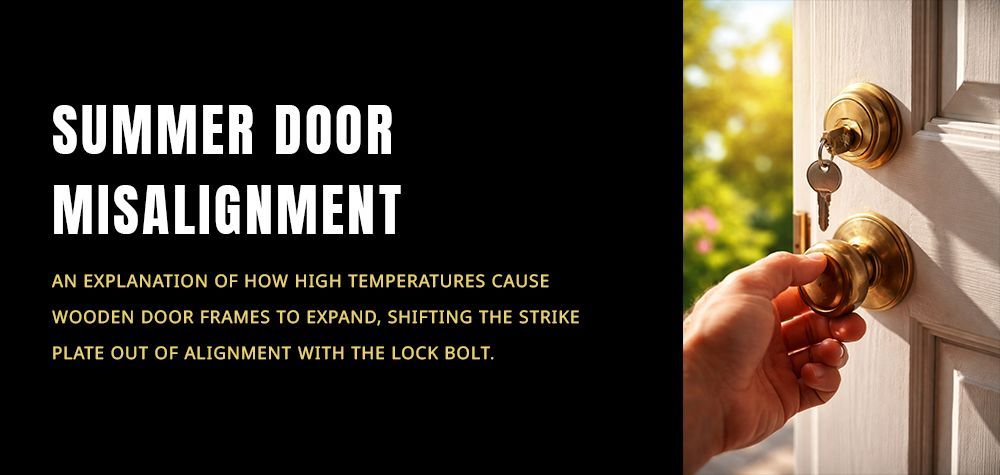What Is a Restricted Keyway and Why Is It More Secure?
When it comes to securing your property, understanding the types of keys and locks available is crucial. One of the most effective and secure options is a restricted keyway. But what exactly is it, and why is it considered more secure than traditional keys?
In this guide, we’ll explore the concept of restricted keyways, how they work, their benefits, and why they might be the right choice for enhancing your security.
How to Avoid Losing Your Keys: Tips for Better Organization
What Is a Restricted Keyway?
A restricted keyway refers to a lock and key system that is designed to prevent unauthorized duplication of keys. This system uses patented key designs and locking mechanisms that can only be accessed by specific locksmiths authorized by the manufacturer.
- Unique Design: The keyway (the slot where the key is inserted) is uniquely designed to accept only specific keys.
- Patented Protection: The keys and locks are protected by patents, ensuring that unauthorized duplication is illegal.
- Controlled Access: Only authorized locksmiths or distributors can produce and manage restricted keys.
How Does a Restricted Keyway Work?
The design of a restricted keyway is intentionally complex and unique, making it compatible with only its corresponding keys. Here’s how it works:
- Customized Lock Cylinder: The cylinder of a restricted keyway lock is designed to prevent traditional keys from fitting.
- Authorized Key Cutting: Restricted keys can only be duplicated by authorized locksmiths who have access to the specific equipment and licensing.
- Patent Enforcement: The patents on these keys ensure that unauthorized duplication is not just difficult but also illegal.
Why Is a Restricted Keyway More Secure?
1. Prevention of Key Duplication
One of the most significant advantages of restricted keyways is the prevention of unauthorized key duplication. Unlike traditional keys, which can be copied at any hardware store, restricted keys require authorization and specialized equipment.
2. Enhanced Lock Design
Restricted keyway locks are often constructed with higher-quality materials and advanced mechanisms, making them resistant to common lock-picking techniques.
3. Controlled Access
Since only authorized locksmiths can duplicate the keys, you have full control over who can access your property. This is especially beneficial for businesses, rental properties, and high-security areas.
4. Legal Protection
The patents on restricted keyways provide legal recourse against unauthorized duplication. This adds an extra layer of security and peace of mind.
Where Are Restricted Keyways Typically Used?
Restricted keyways are ideal for locations that require a higher level of security. These include:
- Commercial Buildings: To control access and protect sensitive areas.
- Residential Properties: For homeowners seeking enhanced security and peace of mind.
- Rental Properties: To prevent tenants from duplicating keys without authorization.
- Government Facilities: To secure restricted and confidential areas.
- Schools and Universities: To control access to classrooms and administrative offices.
Benefits of Using Restricted Keyways
1. Increased Security
The unique design and controlled access make it nearly impossible for unauthorized individuals to duplicate keys or bypass the lock.
2. Accountability
With restricted keyways, you can track who has access to each key, reducing the risk of lost or stolen keys.
3. Long-Term Cost Savings
Although the initial investment is higher, restricted keyways reduce costs in the long term by minimizing the need for frequent rekeying or lock replacement.
4. Peace of Mind
Knowing that your property is protected by advanced technology and legal safeguards offers unparalleled peace of mind.
When Should You Consider a Restricted Keyway?
Restricted keyways are a great choice if you:
- Require High Security: For valuable or sensitive items or areas.
- Have Multiple Users: In situations where key duplication needs to be tightly controlled.
- Want to Avoid Rekeying: If you’re tired of replacing locks whenever a key is lost or not returned.
How to Get a Restricted Keyway Installed
Step 1: Consult a Locksmith
Reach out to a trusted locksmith to discuss your security needs and whether a restricted keyway is the right solution.
Step 2: Choose the Right System
There are various restricted keyway systems available. Your locksmith can guide you in selecting the best one for your property.
Step 3: Professional Installation
A professional locksmith will ensure the lock is installed correctly and provide guidance on maintaining it.
Step 4: Maintain Authorized Access
Keep a record of who has access to the restricted keys and ensure you only use authorized locksmiths for duplication.
FAQs About Restricted Keyways
1. Can restricted keys still be stolen?
While restricted keys cannot be duplicated without authorization, they can still be stolen. It’s essential to store them securely and track who has access to them.
2. Are restricted keyways expensive?
The cost of restricted keyway locks and keys is higher than standard systems, but the added security and peace of mind are worth the investment.
3. Can I rekey a restricted keyway lock?
Yes, restricted keyway locks can be rekeyed by an authorized locksmith, providing additional flexibility.
4. Are restricted keyways suitable for homes?
Absolutely. They’re an excellent choice for homeowners who want to ensure their locks are secure and their keys cannot be copied without permission.
5. How long do restricted keyway patents last?
Patents typically last for 20 years. Once expired, the manufacturer may continue to restrict key duplication through licensing agreements.
Conclusion
Restricted keyways are a powerful solution for anyone looking to enhance their security. By preventing unauthorized duplication, offering advanced lock mechanisms, and ensuring controlled access, they provide peace of mind and long-term value.
Whether you’re securing your home, business, or other properties, consult a professional locksmith to determine if a restricted keyway system is right for you. With the right system in place, you can enjoy unparalleled security and confidence in your key control.
Call Us Any Time!


